“To Know, To Will, To Dare, To No Longer Be Silent – by Tanisia Greer
Today is the last day of February concluding Black History Month for 2015. Each year the U.S. celebrates the legacy, and influence of Black people whose stories have historically been omitted from history books. It was in 1926 when Carter G. Woodson first founded Negro History Week. In 1976, it was expanded into Black History month. One week or an entire month, this celebration has held a lot of meaning for many of over the years.
![[photo credit: T Thorn Coyle]](https://wildhunt.org/wp-content/uploads/2015/02/10497131_10155208300345258_5647293507454577006_o-500x500.jpg)
[photo credit: T Thorn Coyle]
African American followers of Pagan paths also practice within a community where their voices are the minority and where they are not as visible within the overculture of modern Paganism. The intersections between societal culture and ethnic culture often influence the magical practices and beliefs of Black people.
Joining in the celebration of Black History month for 2015, we honor the voices of African American Pagan practitioners in the modern Pagan community. They speak about their feelings and the importance of Black History month; they share their influences and inspirations as a magical practitioner.
Reluctant Spider
My main altar always has a section dedicated to my ancestors, named or unknown alike. More often than not, I offer incense for the beloved dead and burn candles for the transitioning or living family. Through red or white threads that tie us, they can speak back through time to me in word and energy and I back to them as the end result of their legacy. It’s hard to doubt that what I do in my life matters when I put it into perspective like this.
Black history month is building a history for a group of people who lost touch with a lot of theirs. Though research is getting better trying to trace family lineage beyond the slave trade and prior can be a painful reminder that we could feel like a people without a real homeland nor history, neither this nor that. Black history month is a way of embracing our shared roots from the seeds sprinkled here by our ancestors lives. I do cringe from the occasionally obligatory, even show-pony, nature of Black History Month and yet also allow myself to drink in the wisdom, courage and daring of black people in this country with pride. After all, I’m black. This is my country and I hope to contribute things with the discovery that is my life too. In order to draw possibilities out of myself I often need examples and Black History Month is an opportunity to remember that there are plenty of amazing women and men of distant and recent past who look like me. It’s nice to occasionally see yourself in the mirrors of time. – Reluctant Spider
Ciera Jennings
As a Person of Color that is a Magickal Practitioner, Black History Month gives me a space to join with the energy of others in our culture and honor Our elders and Ancestors that we may not normally honor every day. In my practice, ancestor reverence is vital. For without them we wouldn’t exist; it is They who birthed us and walked before us to show us how to live and fight. It is our Ancestors that stand beyond the veil and are helping our prayers be answered and our spells manifest. No matter what diety you may worship or if you don’t worship Deity at all, the thing that unites us across all barriers is that we have Ancestors. What Black History gives POC practitioners is public space to honor and educate others, as well as ourselves, about the people who died, and those who are still fighting, to make us great. – Ciera “Phoenix” Jennings
Tata Nkisi Sima Ngango of Batalla Mayombe Sacara Empeno, Chris Bradford
During February, when I share history and understanding of the horrors of Black History in America, folks expect it. I don’t have to feel like some radical for sharing things we all should already know, but do not because we are taught other people’s history, and taught history with Black folks and Black greatness literally whitewashed away. During February, I can talk about history with the ease I should be able to every month of the year. During the rest of the months I’m a radical, a rabble-rouser, a trouble-maker, “negative,” for talking about the realities of American History and the deep and powerful impact we have had on the world. During the rest of the months, I’m a conspiracy theorist or delusional for speaking about the very real contributions Bantu and other Sub-saharan cultures have made, and for calling out the systems that are continuously working to repress and control us.
Yes us; African-American culture is steeped in it’s Bantu roots, and we are part of that diaspora. I tire of having my history removed from me for the convenience of others. I no longer care if it makes other people uncomfortable. February is a leaping-off point each year for the re-education of myself and my peers about who we are, defined by US and not by the children and culture of our oppressors.
Nat Turner. We had revolutionaries with his same fire, his same wisdom, his same willingness to get things done that serve as honored ancestors who fought slavery in Cuba. As an African-American, Nat Turner is the warrior and ancestor who took up the gun, took up the machete and showed us how oppression like slavery and vicious harm done to our people should be met. With raised arm, with blade, with gunpowder and fire! I look to his example when I deal with enemies, and when I make plans for my future and the future of my folk in this nation of ours. Palo Mayombe is a fiery religion, rooted in medicine and war, and I’m called as a Tata Nkisi to fight for what my folk and community need. He also is an important reminder that *action* creates change, creates respect, and that talking about the problems we’re dealing with will only get us so far, if all we are willing to do is talk. I’m willing to talk, but I keep my machete close. His spirit stands behind me. – Tata Nkisi Sima Ngango of Batalla Mayombe Sacara Empeno, Chris Bradford.
Luna Pantera
Black History month has always been important to me since I was a young girl. Even then I thought it was “weird” that it was the shortest month of the year! It is a time for me as a Black woman to turn inward and acknowledge the history, sacrifice of my Ancestors especially female Ancestors.There are three that come to mind: Nina Simone, Mary Ellen Pleasant and Octavia Butler.
As a Black female witch who also identifies as an activist and writer the reasons are obvious. Nina Simone never let her fear of her “popularly as a performer get in her way of speaking her truth with such tunes as Mississippi Goddamn or even Jenny the Pirate which takes on a totally different tone with a strong Black female voice. Mary Ellen Pleasant was once a slave who through her own “wiles” got her freedom and studied with Maria Laveau. She then went on in the energy of Harriet Tubman to work the Underground Railroad to free hundreds of slaves and set them up in some of the “finest” homes in San Francisco. She was the richest person in California at one time worth over $10 million dollars! She was also a civil rights activist. And last but never least Octavia Butler who was one of the finest Science Fiction writers who always included race and gender in her stories.
During this month, and truthfully the entire year I celebrate them through my own work of writing, helping others connect with their own Ancestors and inspiring others to learn and respect “those that came before them!” Ashe!!! – Luna Pantera
Tanisia Greer
Many events over the past 5 years, including the many publicized killings of Black men, women & children, and the coarsening of discourse about race in America, has awakened me in ways that I never imagined. In Paganism, and specifically in Wicca, there’s the adage “To Know, To Will, To Dare, To Be Silent.” For me, as I’ve learned to re-evaluate how I approach Black history and my own history, the last part of that saying has changed in my mind to “To no longer be silent.”
In magick, keeping your workings “silent” and secret protects the energy of the work and allows the ritual and energy released to go out into the world. I’ve learned in the past 6 months that, sometimes, the true working of one’s will comes when one dares to speak up about things that have been kept silent for far too long.
Our Black historical luminaries created great social workings not by staying silent, but daring to speak out against injustice and advocating for humanity and equality. Their words continue to live and vibrate and create changes in people, long past their passing through the veil. What that has taught me, as a Pagan and a Black woman, is that there is just as much power in speaking out as there is in preserving my words and energies. It has induced me to search out parts of my personal family history and long-suppressed aspects of Black history to help complete the picture of Black history in general, and my place in this world in particular. And that “working” has expanded and brought a new richness to this year’s Black History Month, and challenges me to become a stronger person and witch, ready to stand and speak my own truth. – Tanisia Greer
Erica Shadowsong
I have a feeling my answers may be reflective of a particular generational perspective, as well as perhaps the modern Pagan of Color who is not connecting to Paganism directly through a tradition passed on through ethnic heritage. The truth is, I’ve always been a bit ambivalent about Black History month. I don’t feel that I have a sense of the context that made it so important to others; people in my generation think that the history of all peoples should be integrated, all the time.
I feel uncomfortable with a month set aside to give what often seems an obligatory nod to African Americans. What I really want, and what would have helped me growing up, would be to see and learn about people like me – women, Pagans, People of Color, varied gender/sexual identities and abilities – as part of the whole tapestry of human history. I do not want to be a special category that only I care about. I want to be included in the greater story. The other way is lonelier.
I draw inspiration from present day Pagan authors of color, such as Stephanie Rose Bird. Throughout my life, I have drawn personal inspiration from Sojourner Truth (especially in her experiences as a woman treated differently than white women, and being strong and independent), Harriet Tubman of course, Zora Neale Hurston, Frederick Douglass, Octavia Butler, and other authors or extraordinary women. – Erica Shadowsong
Toya
It is important to me that the complete picture is always shown. How many people know that Martin Luther King Jr. was an enemy of the state when he was gunned down? How many people know that the Black Panthers actually were feeding the poor and homeless? Many folks think Rosa Parks was just a tired seamstress, her work before the bus seems to all but disappear.
Every African American Figure who came before me and even after me inspires me. From when they stepped on the boat to come here. To the ones who died along the way.To the ones who reached the mainland.
My (Our) blood is filled with inspirational men and women who were descendants of kings and queens, warriors and healers, farmers and bankers. Each figure who refused to conform to status quo, rules established to keep us in subservient positions inspire me.
Throughout our 500 years of history here in the United States, it is littered with the blood, sweat and tears of men and women who fought for our freedom.Through slavery, Jim crow, the civil right movement of the sixties, to now the new civil right movement still fighting for our equality and our lives.
Some names are known, while others are not. But their blood runs through us all. Our ancestors inspire me to surge ahead and not back down. That is the MAGIC that flows through my veins. Everyday I wake up and breath in is because of them. It is the fire that burns in my soul.
To simply just name one I can’t. I name them all. They have all inspired me to continue the fight because the battle is far from over. – Toya ScorpionGoddess
Cecily Willowe
There is only one person that I truly idolized and her name is Alice Walker. I love this woman so much, I swear I swoon at the mention of her name or her written works. It all started when I first read about the term Womanist coined by Walker. A womanist, as Walker defines, “ Loves music. Loves dance. Loves the moon. Loves the Spirit. Loves love and food and roundness. Loves struggle. Loves the Folk. Loves herself. Regardless.“ In every way this was me or what I hoped to be. It was the way I wanted to approach my spiritual practice as a Wiccan. For me, magic is about approaching life from a place of love, wonder, pleasure. It is about coming into my full being. Eventually, I learned Walker is a self proclaimed “Renegade, an Outlaw, a Pagan.” I learned that Walker’s paganism includes a love of nature, women and Blackness.
Over the years, her words have inspired me to enhance my Wiccan practice to meet my cultural needs as a Black woman. Womanism gave me the tools to apply social justice to my practice and philosophy. Nowadays, driven by the power of womanism, my practice has become fuller and blacker. – Cecily Willowe
Black Witch
I know it’s to highlight the importance of Black achievements and that it originally started as a week and then moved into a month and was supposed to be integrated into a year as part of normal cultural history. However, it instead gets used as a crutch for people to not talk about Black history and achievements for the other 11 months of the year and go back to making humanized Blackness invisible and look as mythical as possible. As a Black practitioner (I still am not a really big fan of the term “person of color”, sadly), it doesn’t really affect me since I already seamlessly integrate Black history and experience into my practices. That makes Feb just another month for me, sort of. It is a relevant month for other people – a relevant month not used like it should be, which is to dismantle culturally embedded racism in permanent or long standing ways – but it doesn’t truly affect me since I have it already integrated into my experiences.
As an individual: Ida B. Wells, I always looked up to her since I was a kid. She’s great and what I want to be. As a magick worker, I really can’t bring anyone to mind off the top of my head. – Black Witch
Oseaana
When we look at common Black History month celebrations they seem to focus on the period between post-slavery and the present as if we had no history before being forced into slavery.
We actually have a long and rich history outside of this country where we were the foundation of civilization itself! We were Queens and Kings. We were the first scientists and mathematician. Our spirituality and philosophy has spread and became the basis for cultures and traditions worldwide. None of this is taught in schools. When I was in school I was taught that slavery was a horrible thing and thank god for Abraham Lincoln for freeing the slaves and then nothing much happened until Dr. Martin Luther King, Jr. marched and gave us all out rights. That was pretty much the history of Black folks in this country. So for me the importance of Black History month is to make a commitment to honoring our rich and ancient history each and every day. To know thyself is the first step in any spiritual practice and if you don’t know the history of your own DNA then how can you really understand who you are?
I am most inspired by my ancestors and their life of struggle and triumph. A few years ago I made a video tribute for my Grandfather Joseph Parker who was one of the first great Black Horsemen. He overcame extreme racism and adversity to become a top horse trainer in a field that was off limits to anyone of color…save for being a groom or cleaning stalls. I know what my Grandparents went through to achieve the success they had. They moved from Baltimore, MD to New York and purchased an 86 acre farm for their family. No small feat for a Black family in 1950’s America. As a spiritual worker it is important to me to have a deep connection with my ancestors. They are my link to the spirit world and guide and protect every spiritual working I do. – Oseaana
Clio Ajana
When I was in fourth grade, I remember when my babysitter gave me a comic book about the story of Matthew Henson. Until that point, I had no idea that black people were involved with finding the North Pole, or that we could be explorers of more than what was familiar. The more common credit at the time was given to Robert Peary. Even when Peary’s discovery of the North Pole was disputed, the name of Matthew Henson, explorer remained untarnished in my mind. Black History Month is a time of sharing wisdom and exploration. As a person of color, my sole regret is that my culture and race are categorized into one brief time period by the term “Black History Month”.
As a practitioner, I glide through the flowing masses of Pagans as an invisible minority within a racially visible majority. During the past ten years, I would love to say that I had seen an embrace of Black History Month in the Pagan community, or that I was encouraged to take a stronger stance during this time both as a Pagan and as a black woman. Instead, my history, my learning, my curiosity sparked by Black History Month was cultural; as a practitioner, my goal during this time was survival.
During this time, I am a split individual: a practitioner who embraces culture to pass on to the next generation; a representative of culture who seeks to embrace magic to preserve our history, our dignity, and our strength as the non-majority persons of color. I would love to agree with those who criticize the existence of Black History Month; however, my fear is that without it, we would have no public time and mental space to acknowledge the accomplishments of those who might explore and journey, yet, like Matthew Henson, remain invisible at first. – Clio Ajana
Dava Greely
When I read this question, the spirit of none other than Eartha Kitt pushed her way to the front of my mind. She overcame so much and created a life and legacy for herself that is something to behold. I believe she was something like a Pomba Gira spirit. She was intelligent, beautiful, classy, sensual, witty, and bold. She was outspoken and held no punches when it came to exposing the bull. Her greatest honor was that of Motherhood.
When you remember how she stood up in the White House and told the truth about the agony of the war – when you remember that Lady Bird Johnson cried at the audacity – when you remember that she was blackballed and took a ten year hit in her career after the fact – and that she STILL made a comeback and had a successful career…yeah…only a witch could manage that.– Dava Greely
Lilith Dorsey
“I just finished arguing with some folks on social media who didn’t understand why I hate the holiday, and suggested I read the words of Carter Woodson, the originator of Black History Month. Of course I have read Woodson, but I choose to look at the words again. What is so disheartening is that even though he wrote about a world in which “we teach ourselves,” the reality almost 80 years later is something discouraging and different. Looking at my own long journey through higher education, and that of those I know, there were few if any educators of color, and the agenda they were required to teach was limited and prejudiced. I have dedicated my life to helping people to understand the glory and majesty of traditional African-based religions such as Voodoo, Vodou and Lucumi (Santeria.) In no other arena is prejudice and miseducation so rampant. Most curriculum won’t touch these subjects, and the work of good people like myself is buried and marginalized for the same old song about MLK and Rosa Parks. In actuality Black History is a scar, a brand, a continuous systemic reality of oppression. In my work I write a lot about Zora Neale Hurston, because she was both an anthropologist and a Voodoo priestess like myself. The other day I rediscovered her words following the Brown vs. Board of Education decision, and they seem appropriate when thinking about Black History today.
“It is a contradiction in terms to scream race pride and equality while at the same time spurning Negro teachers and self association. That old white mare business can go racking on down the road for all I care.” – Lilith Dorsey
![[photo credit: T Thorn Coyle]](https://wildhunt.org/wp-content/uploads/2015/02/10945886_10155155616150258_883814474465355579_o-500x500.jpg)
[photo credit: T Thorn Coyle]
Why is it important to feature the voices of African American practitioners on The Wild Hunt? The voices and faces of people of color within modern Paganism show a array of diversity and culture that is not often visible within our broader community, much like within greater society.
Black history month has a range of influence in the larger culture, but that does not always seem to reach the culture of the modern Pagan community. It is rarely spoke about within Paganism, and yet it holds space for something very important within the building demand for equity. The ability to be seen should not be regulated to one month or one snapshot in time. Yet, this month allows for the acknowledgement of the marginalized that are often not considered.
Many people do acknowledged Black heroes this month, pass on Black history memes on social media, and remain supportive in matters of equity and justice. At the same time, a great majority of people do not acknowledge the significance of Black history in February, or in any other month of the year. We should ask ourselves, how can we support the celebration of Black culture within our Pagan framework? Why would it be important to include the heroes, history and ancestors of Black people into the honoring we do? What does it communicate to ethnically-marginalized people within the modern Pagan community when we do not acknowledge their history, heroes and ancestors? How do those choices continue to shape culture within our community?
As Black History month closes for 2015, let us celebrate all the ways that African Americans have contributed to the history of this country, our society, and our Pagan community.
The Wild Hunt is not responsible for links to external content.
To join a conversation on this post:
Visit our The Wild Hunt subreddit! Point your favorite browser to https://www.reddit.com/r/The_Wild_Hunt_News/, then click “JOIN”. Make sure to click the bell, too, to be notified of new articles posted to our subreddit.
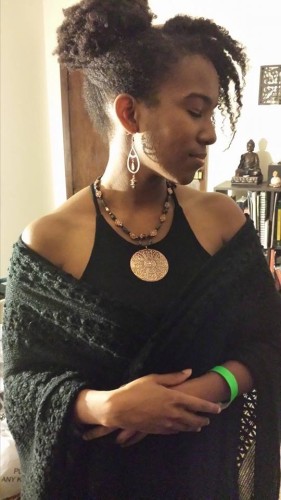
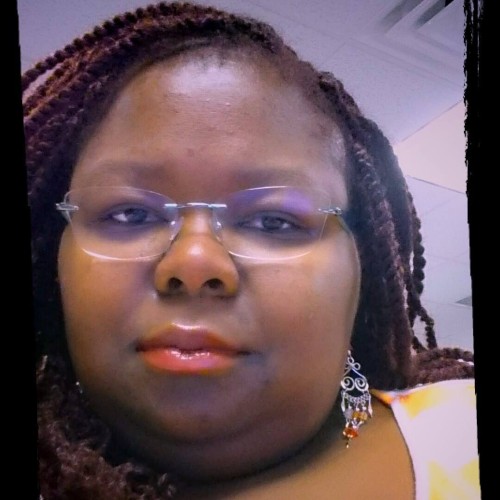

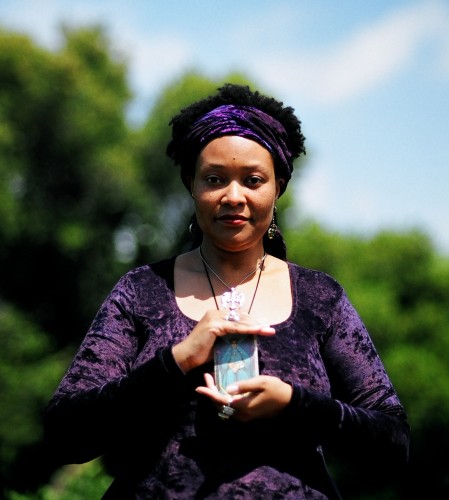
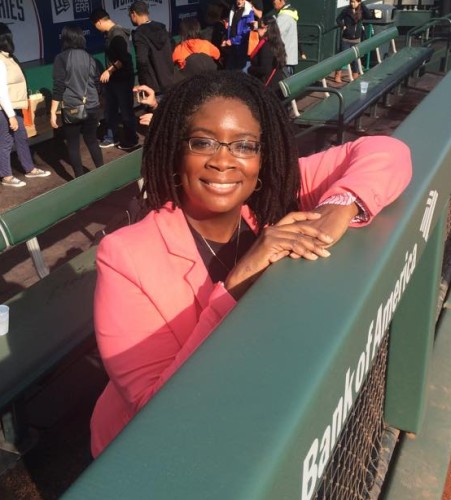
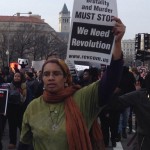






History is the story of the people. Which people? The ones telling the story of course. What might be an interesting project would be to discuss what would not be here if the black people were not here.
I can think of a few things off hand, but I know there is far more that I am unaware of. But most people are not aware that if you pulled any of the people that make up our country out of our history that this would be a quite different country. There is a lot more to American history than white Anglo-Saxons. It is far past time that the rest of our history should be taught.
Crystal — I LOVE that you did this! Really enjoyed seeing the diversity of viewpoints. The overwhelming theme seems to be honoring the ancestors. Never having known my own ancestors of blood makes that practice is fascinating to me.
Toya — Yes, some of us who were there/then knew that the Black Panthers started out as a social welfare organization. Then they got pissed off — which scared the white folk no end and really broadened the discussion. It is similarly true that the great legend Jesse Jackson was found with his hand inappropriately in the till at Operation PUSH — which doesn’t change a bit of the good work done by that organization, but in my mind just reasserts that we are all humans who can make mistakes and nobody is perfect.
Disqus didn’t pick it up, but I’ve been wearing a Black Lives Matter icon all month. Since folks don’t necessarily know there’s a pink person behind the icon — although the name should give it away, but hey — I’ve received more than a couple of the dismissive, diminishing “all lives matter” responses. Getting a small taste of the treatment black folk get far more often. It’s been an interesting experiment — just leaves me thinking “aren’t black lives a part of all lives?” What makes people so afraid of focusing on the value of black lives? Especially from Cleveland (hello from Cleveland) where our young black men are disproportionately likely to get gunned down (by cops or gangs or both) or find themselves in prison for longer than a white young man would be sentenced. Sorry, I’m ranting. Tamir Rice has been heavily on mind since November — kid acting like a kid, looked just like stuff my kid did, what’s wrong with those cops?
Thanks for putting this piece together. I really enjoyed reading it!! B*B
Crystal, it is so wonderful to get to read such a variety of voices in this piece. I hope this isn’t the last time we’ll get to hear from some of these practitioners.
you wrote:
“Why would it be important to include the heroes, history and ancestors of Black people into the honoring we do? What does it communicate to ethnically-marginalized people within the modern Pagan community when we do not acknowledge their history, heroes and ancestors? How do those choices continue to shape culture within our community?”
These are very good questions that we would do well to examine together. Thank you for raising them. I hope the coming decade shows growth in mutual understanding and support.
By the way, thanks for using a couple of my Black History Month memes. I had a great time making them, highlighting some of my heroes, and favorites, and also researching some people I’d never heard of before. I was glad to see that some of the people I happened to highlight were mentioned as inspirations in this piece!
If people are interested, they can see the whole collection here: https://www.facebook.com/media/set/?set=a.10155083698595258.1073741833.131354050257&type=3
I missed a few days, but will make up for that next year!
Thank you for this, Crystal! And especially for collecting so many different people’s varied responses…I always love to see any issue at hand as being more than a univocal one, and Black History Month certainly is one such matter.
I was planning a mega-post for today on Black History Month, some of the things at PantheaCon and their aftermaths, what a lot of this means within the context of my own specific work as a modern polytheist, and a great deal more…and I am still going to write that post, but now I’m going to prioritize it over the others I had planned today (still making up for some I missed during PantheaCon related to our regular calendrical holidays–of which there are a lot!). I shall be linking to your post, certainly.
As always, thank you for doing this work and for being a visible voice reminding us all of what we should be doing all the time and not just for one (and the shortest!) month of the year. 🙂
Frankly, Black History month should be important to all for the simple reason that humanity’s birthplace is Africa, more specifically the Rift Valley in Western Africa. When we sense the spirit of a place or call on our ancestors for support and in remembrance, we are following the path of those first people who summoned spirits and honored ancestors. And those people were African.
Thank you for this. It fills in a lot of gaps both in Pagan history, and in American history in general. I have really enjoyed watching the dialogue on race happening in the Pagan community, because I do feel it’s a conversation that’s been a long time coming here. Being white and getting a fairly standard American education, there’s just so much that I missed out on. As an adult I can pick up where the school system left off, and the voices here are an important part of that continuing learning and contextualization.
The Bay Area PBS channel, KQED, had a Black History quiz. I thought I knew more, but I only got about 40% correct. Learned a lot, though! Black history matters to me–the histories of marginalized people matter because “the victors write the histories”. I have a thing about suppressed/dying languages, as they tell you so much about a culture, but blame that on being a linguistics major decades ago.
Great post. So many times we forget others because they don’t fit in a box.
Looking back, my Lebanese mother’s collection of records was predominately musicians and singers of color: Lena Horne, Xavier Cugat, Harry Belafonte, and the inimitable Eartha Kitt. I have a goodly amount of her work, as well as that of Nina Simone, about whom I learned only after her death. I had never heard of Mississippi Goddamn. Wow. I’ve seen Queen Ida and Ella Fitzgerald live in a small space, courtesy of Apple Computer under M. Gassé. I admit to failing to appreciate Ladysmith Black Mombasa when I saw them in concert, possibly due to the fact that I had no idea what the lyrics were in translation.
Looking up Babalu, sung by Desi Arnaz, gave me an insight to music I’d taken for granted, and a side to his religious/cultural beliefs which might have fit into the African Diaspora spectrum.
I know who Lady Smith was, BTW. I read novels (and some history) set in the time of the English Regency/Napoleonic era. I know about the Free People of Color and the placées in New Orleans, due to Barbara Hambly’s novels, and the life of Josephine Baker from other sources. Not pagans, unless, as a commenter on Daughters of Eve suggests, Eartha Kitt was a witch. I could believe that.
For history: Zora Neale Hurston studied not just Hoodoo but the Eurasian mysticism of George Gurdjieff, not the only member of the “Harlem Renaissance” to be attracted to the work of this difficult esotericist.
I did not know that! Very cool.
Thank you for showcasing so many black Pagan voices in this feature! More and more, I reflect on what I’m coming to think of as the “empathy gap” between the experiences of white members of our society and people of color. With the attention that has been generated by some painful examples of that within the Pagan community, I’m happy to hear voices that are new to me, helping to open me just a bit more to another set of experiences within my Pagan community.
And it was great to be reminded of some black American voices that have resonated with my Pagan self–first and foremost, Alice Walker, but also Octavia Butler and Zora Neale Hurston. It is good to acknowledge that these are voices that have shaped my spirit, too.